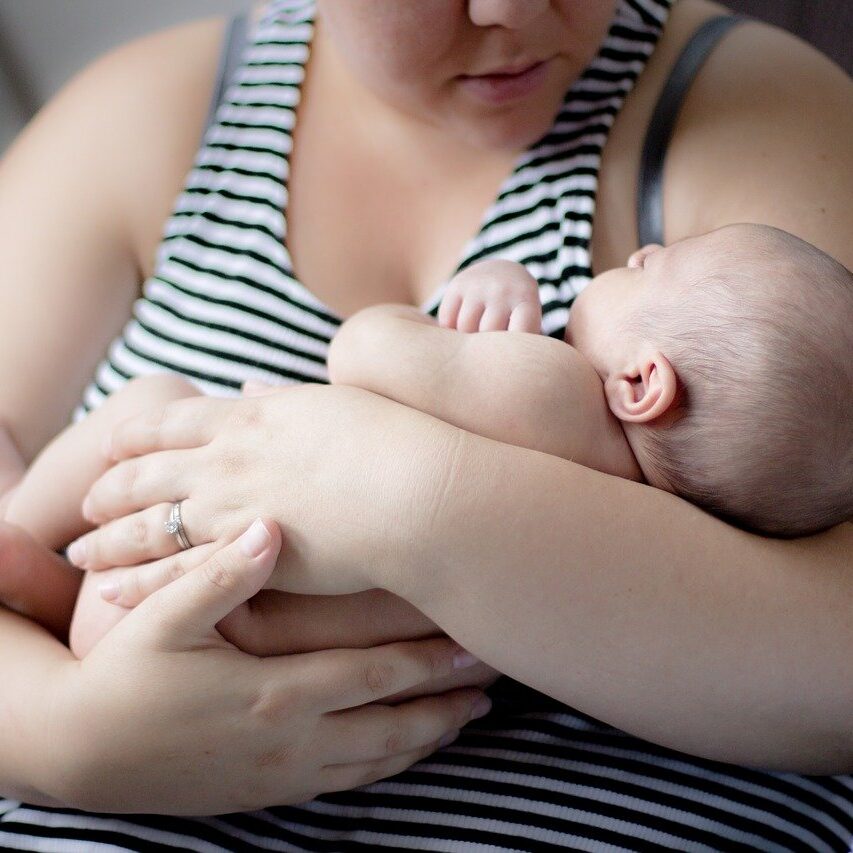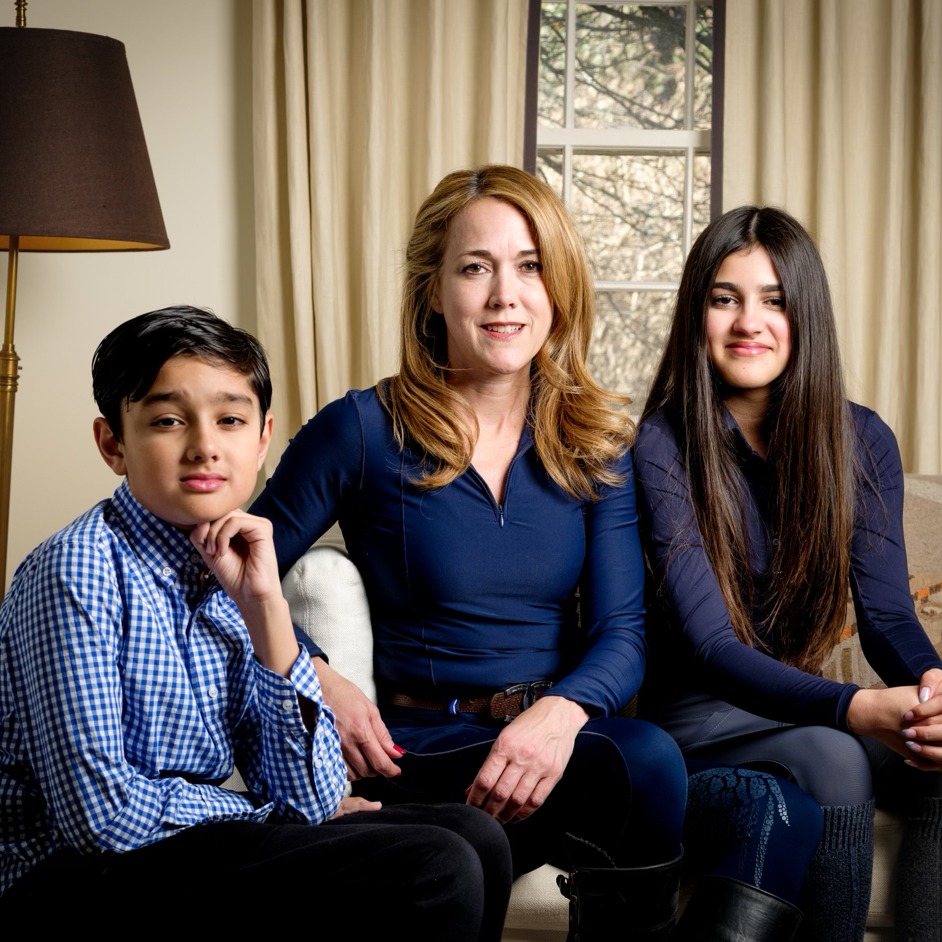#MomCrush Monday: Meet Ara Katz, Founder of Seed

1.) You’re an amazing mama, a huge science buff and Founder of Seed. How do you manage to balance your personal life, your passions, AND your business?
To answer this question, it’s worth noting two important callouts: First, men never get asked this question. And second, the simple answer most women don’t honestly give is that unlike too many other mamas in this country, I can afford childcare. Yes, I have many other productivity hacks to share, but the simple truth is that all of those are made possible because I have the privilege to afford childcare.
With that out of the way, I do live by my Google calendar. If it’s not on the calendar, life simply doesn’t work. And the more I plan, the more I can avoid a life dictated by my inbox and the things that need to be reacted to all day. Deep work on big ideas at Seed are calendared. Self-care time—also on the calendar. Time with my children not to be scheduled over—also on the calendar. Who is doing bedtime—even that. Taking time to structure time is the only way I’ve been able to solve the intentional creation of space for what’s most important.
Because I work in a field of microbiome, I have a unique lens through which to see the connectivity of my choices and how I want to show up for my children, for myself, and for our Seed ecosystem. I’ve never been one to silo these parts of my life (part of where I think a lot of the tropes of “balancing it all” and the suffering that emerges from feeling like one has to be chosen over another)—so I have instead cultivated a life that connects and aligns these areas as extensions of one another.
And lastly, wake up early—give yourself the gift of more time and space in a day.
2.) Seed aims to empower their audience to understand their gut from a scientific standpoint so they can make the best choices for themselves and their families. Why do you find this so important for families to be knowledgeable about?
Over the past decade, research has illuminated the significant role of the gut microbiome in a developing child and how factors like diet, exercise, environment, use of antibiotics, sleep, and hygiene can impact critical windows of development and inform the trajectory of their health through adulthood.
These factors, alongside tools like probiotics and prebiotics, can also provide support for a healthy microbial ecosystem and ensure the choice we make each day for ourselves and our families consider the entire ecology of our health. One of the most exciting aspects of the microbiome is that the science is often actionable—things we can adjust that can almost immediately make an impact.
When we understand what influences our microbiome, we can use this as a new lens for health. It’s especially important to us to be a source of science and integrity because with the rise of “gut mania”, these topics have become increasingly confusing to navigate due to the amount of hyperbole and misinformation.
Inspired by the assertion that “science isn’t finished until it’s communicated”, we obsess over the translation of science and how to make learning (about bacteria, the microbiome, human biology, and health) as accurate, accessible, and engaging as possible. Our education-first ethos means that before we even talk about our products, it is critical to learn. We believe that better information means better choices.
3.) What are some gut health challenges that are common and should be talked about more?
- Constipation. In America alone, nearly 70 million people are quietly living with digestive issues, and nearly 50 million experience chronic constipation. Poop is one of the most important (and visible) biomarkers of your gut health, but the societal stigma and shame around it leads people to suffer in silence, letting their digestive issues go untreated, worsening their conditions and quality of life. Humanizing these issues is critical in order to open the much-needed discourse and dialogue to understand and destigmatize this critical aspect of our health.
- Your gut is profoundly connected to GI health and when disrupted, can signal a larger issue or lead to other health concerns. Every body is physiologically unique and perturbations of the gut can manifest differently for each individual—from mild gastrointestinal symptoms to the severity of seasonal allergies to severe conditions like IBS. If you are experiencing severe or prolonged gastrointestinal distress, then it’s likely a good idea to further explore your symptoms with your doctor.
- Fiber intake is personal. While fiber is notoriously (and generally) critical to the health of your microbiome, it’s not always as simple as it sounds. Latest scientific findings have observed that individuals have a personalized response to fiber consumption, and these responses are dependent on fiber type, dose, and the existing state of the individual’s gut microbiome. Increasing intake of fiber too quickly, or consuming excess amounts of fiber, may cause uncomfortable symptoms such as bloating, gas, and constipation—especially if water intake is not increased in tandem. It’s also important to note that fermentable fibers may aggravate gastrointestinal distress in those with pre-existing conditions, such as IBS—thus, it’s important to exercise caution and carefully incorporate a fiber type fit for the individual’s unique ecosystem.
4.) Can you share 3 key takeaways for parents to keep in mind for optimal digestive health for their whole family?
- Check in on your and your kid’s poops (yes, seriously!). Disruption to routines, less daily movement, and dietary changes can all lead to changes in bowel movements. The Bristol Stool Chart is a handy clinical tool for evaluating and decoding your number two.
- Feed your kids a diverse array of plants. Including a variety of fruits and vegetables can support a diverse microbiome. Interestingly, a recent follow up to the American Gut Project found the strongest predictor of gut microbial diversity was the consumption of over 30 different fruits and vegetables in a given week. In addition, an overload of sugar and processed food can hurt the balance of the gut microbiome, which makes it hard to digest food and for a child’s immune system to function. Microbiome research has demonstrated some clear and actionable dietary guidelines:
- High abundance of diverse sources of plant fibers and polyphenols like vegetables, walnuts, pomegranates, and berries.
- High intake of fiber and microbiota-accessible carbohydrates like broccoli, brussel sprouts, beans, and sweet potatoes.
- High intake of Omega-3 fatty acids and monounsaturated fat like salmon, sardines, avocados, and olive oil.
- Low in sugar, preservative agents, processed foods, and food additives.
- Low in saturated fat.
- Use probiotics and prebiotics validated by science and clinical research. Probiotics and prebiotics are powerful tools to support and strengthen the gut microbiome and other crucial areas like digestive health and gut-immune function during childhood development. It’s important to note that not all are created equal—specific strains have been studied for very specific outcomes, so it’s important to choose a product based on the area of health you are looking to impact. For example, our PDS-08™ Pediatric Daily Synbiotic—a clinically studied 2-in-1 powdered synbiotic for kids + teens ages 3-17 with 9 probiotic strains and a fiber-based prebiotic—was formulated with specific strains to impart benefits in and beyond the gut such as the support of digestive, gut-immune, dermatological and respiratory health. In a 12-week clinical study, PDS-08™ was also shown to support healthy regularity and help promote easy, frequent poops in children experiencing intermittent constipation.
5.) What is your favorite song lyric? Why?
One billionth the size
the point of a pen
Microscopic but on a macro
level within
And unfurled the swirling
cloud of light
A star city, a galaxy,
with all its might.
GZA, The Spark
Because it captures everything we try to communicate at Seed about the microbiome and what it means




